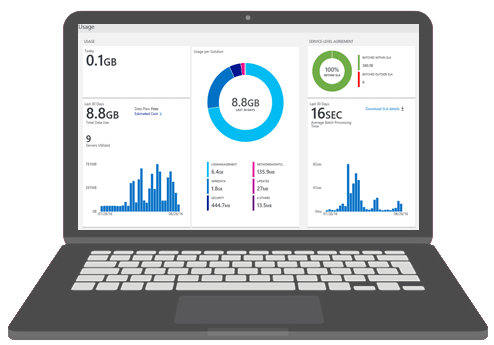
What is Software Development?
Software development involves the process of creating applications and software programs by writing and maintaining the source code. It is about the complete process and the stages involved throughout the software development life cycle (SDLC).
The software development is a step by step process of inventing, specifying, coding, recording, testing and fixing bugs that is done to create and manage frameworks, software components or even to develop a complete application.
Advantages of Software Deployment Tools
- Eases the business processes with custom-made software solutions by enhancing in-house operations and productivity of the organization.
- Helps in integration with the Internet of Things. Ensures Connectivity with users’ devices and other physical appliances to ease users’ lives and improve business outcomes.
- Effective Management of Big Data – It provides capabilities to collate and understand big data through an effective and organized dashboard. It would help business enthusiasts to analyze a wide range of metrics and identify trends to set goals more effectively.
- Choose an experienced software development company when trying to adapt to new software infrastructure which creates an impact to making or breaking of the project.
- Deploying a tailor-made software can automate the processes involved in business and generate centralized management.
- Going by the modern mobile trend, applications that help businesses connect to devices remotely while the users can access processes from any device at any time.
Features
- Software is developed as per the client requirements with demands. The developer gets a clear understanding of the goals of the client before proposing a solution. When the proposed solution is capable to address the customer needs – only then there is success with the software development.
- The software Development involves a life cycle called the SDLC (Software Development Life Cycle). The different stages of SDLC is understanding the requirements, designing, planning, implementing, testing, documenting and maintaining. A software development when passed through each of the SDLC stages – there are high chances of delivering a good quality software.
- Software development assures to deliver a software on time. A software product loses its value when it is not delivered on time. When software is delivered on time it enhances the chances in Return on Investment
Best Deployment in Software Practices
Implement a deployment checklist
Set up a process while you deploy a new software. A checklist helps you to follow what must be done next so that you will not miss out any of the crucial steps
Choose the right Deployment Method
Implement the software that is easy to integrate with the existing local applications and other tools.
Automated Software Deployment Process
Deployment of new versions of software manually is a daunting task that brings in a lot of possibilities of human errors. Automating the deployment process, mitigates the possibilities of errors, increases the deployment speed and streamlines the process
Adopt continuous delivery
Adopting Continuous Delivery ensures to enable the code for the required deployment. This is done by implementing the application in a proto-type environment to ensure if the application is good to function and meet the demands once deployed.
Use a continuous integration server
Continuous Server Integration is crucial for any successful agile deployment. This ensures that the developed program works on a developer’s machine while the it helps you deny “integration hell”.
Key Benefits and Capabilities of Deployment in Software
Automatic distribution and updates
Automatically distribute, update, and manage third-party software to eliminate manual monitoring and having to create installation scripts across different operating systems.
Automated alerts
Allows you to track application status, top deployed applications, and deployments within the last 24 hours.
Task management
Organize and manage software tasks using administrative portals.
